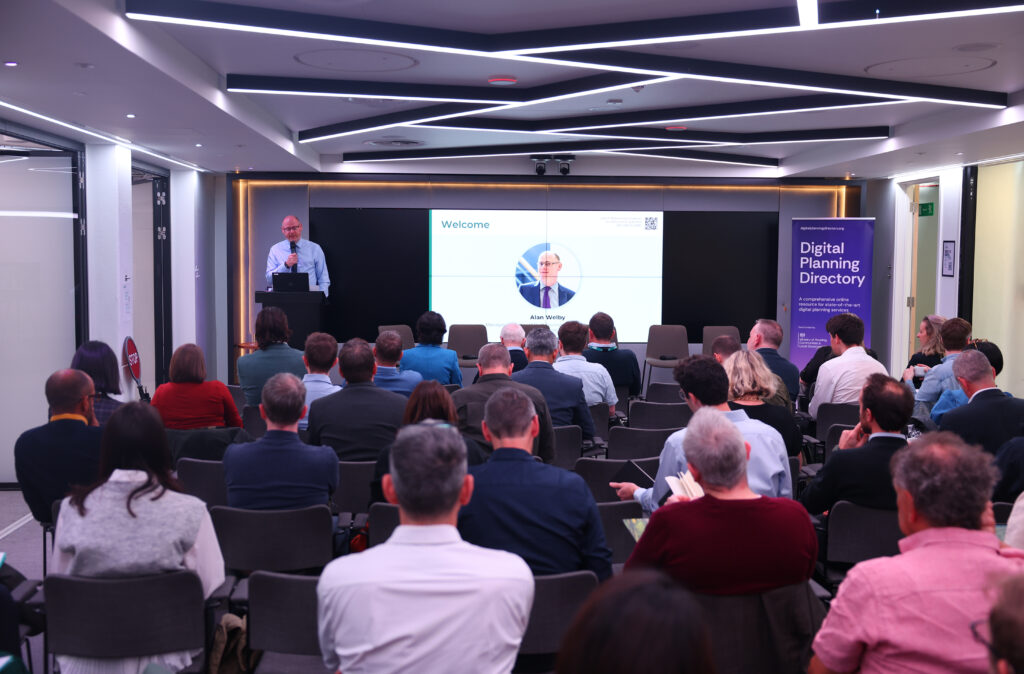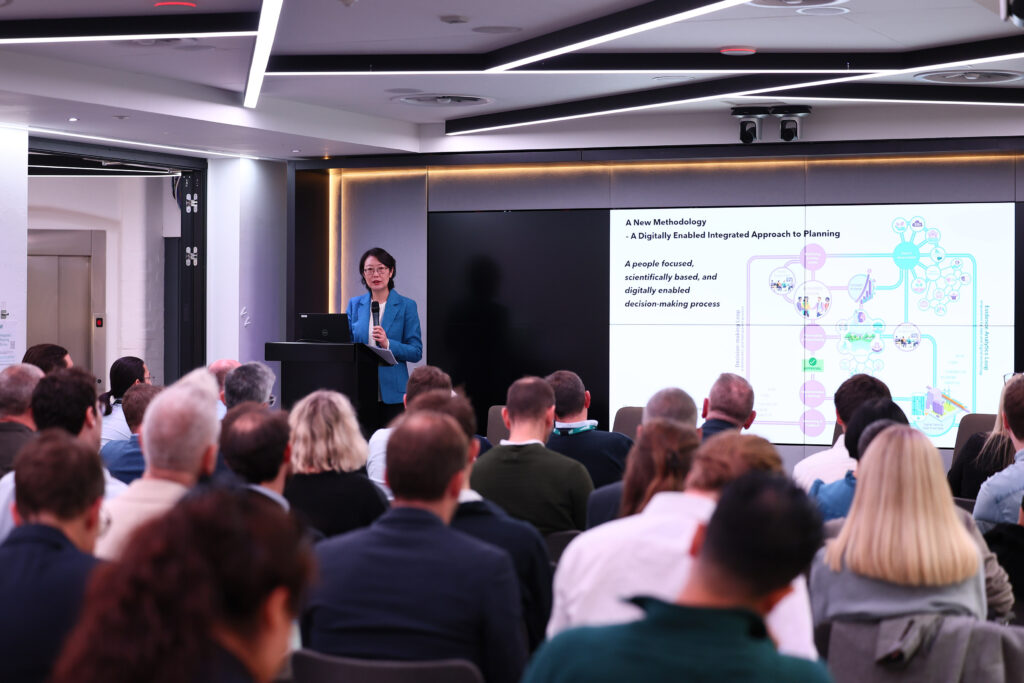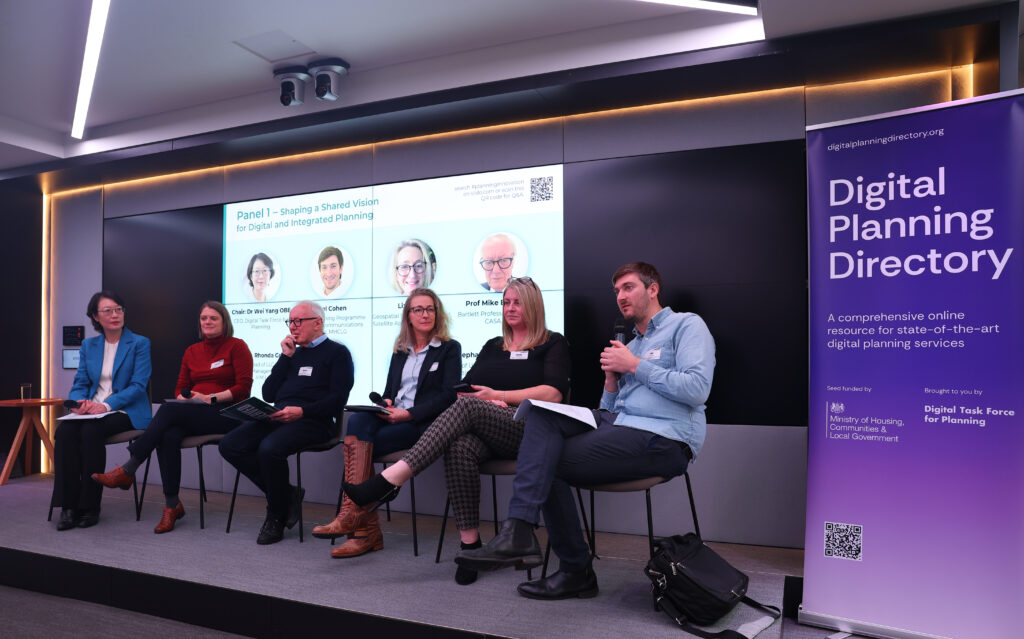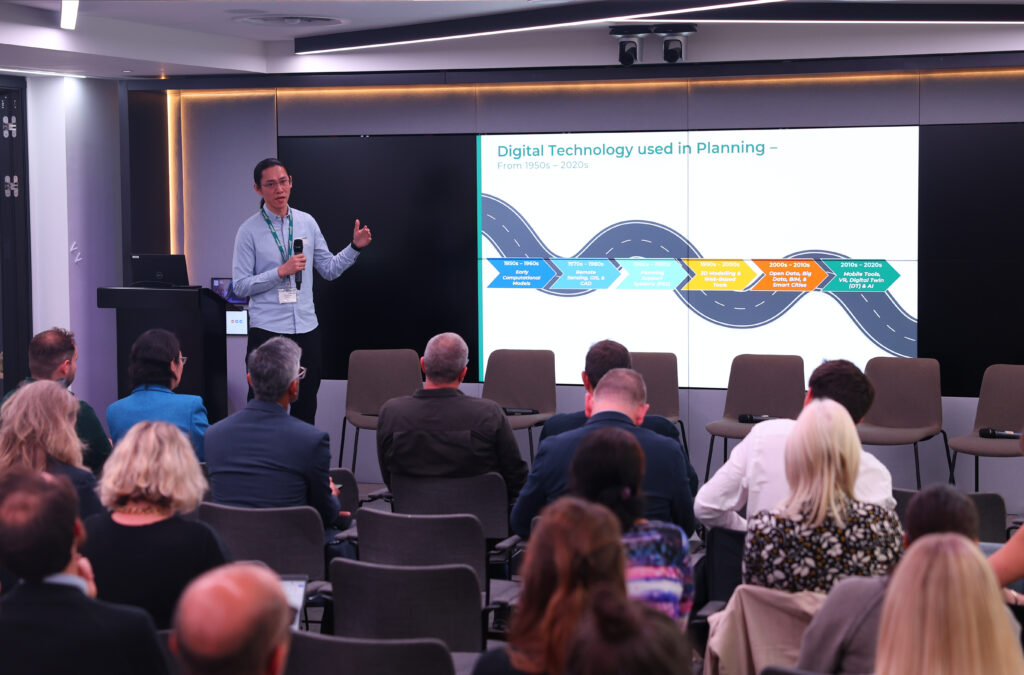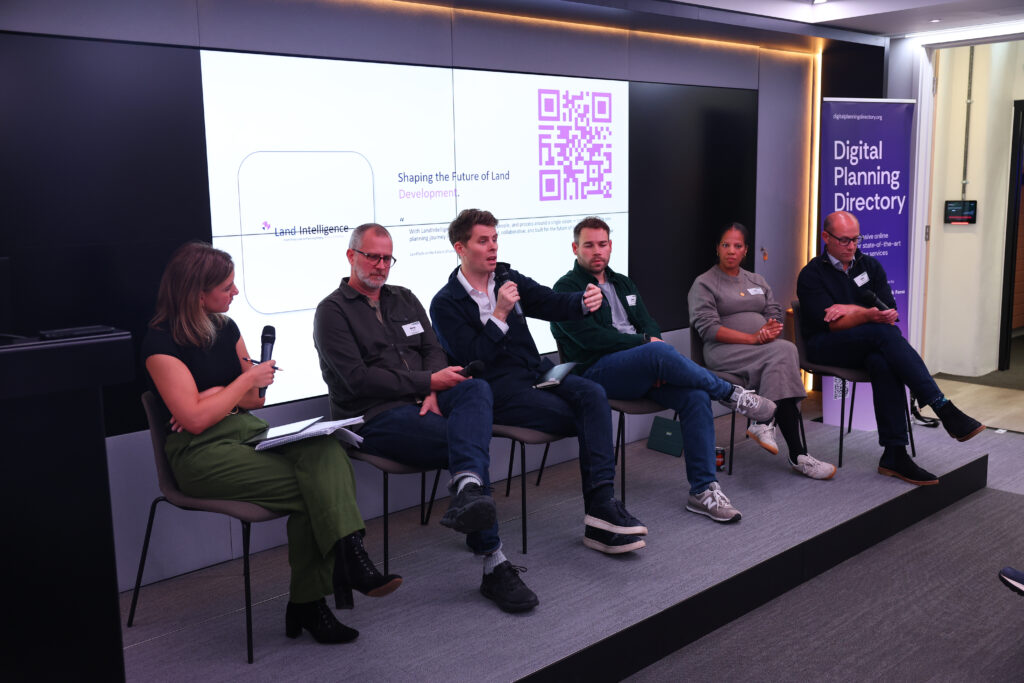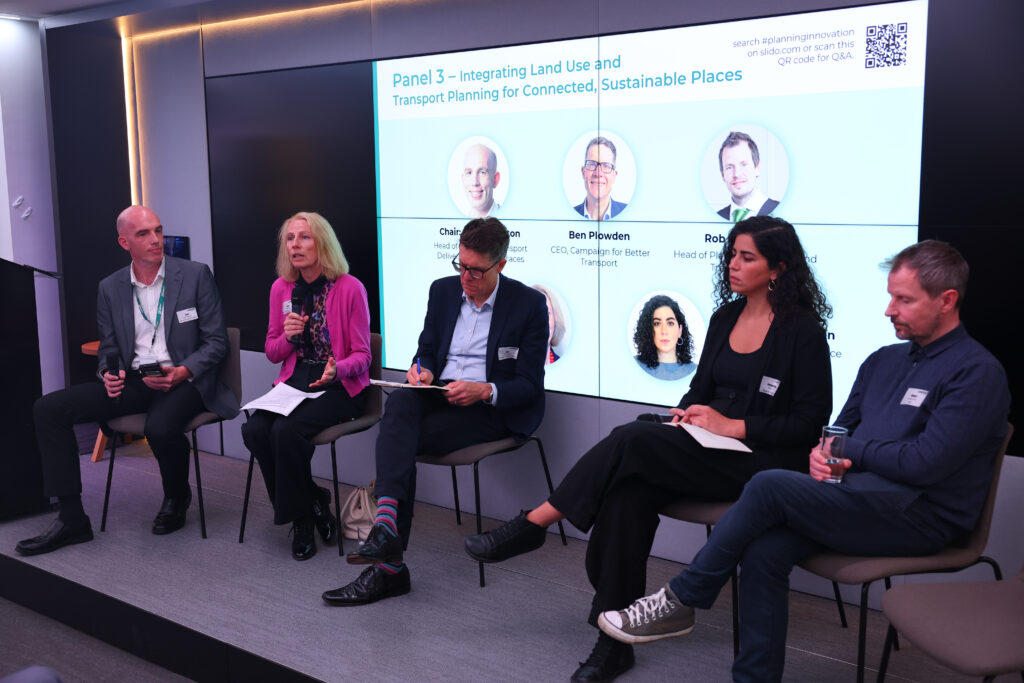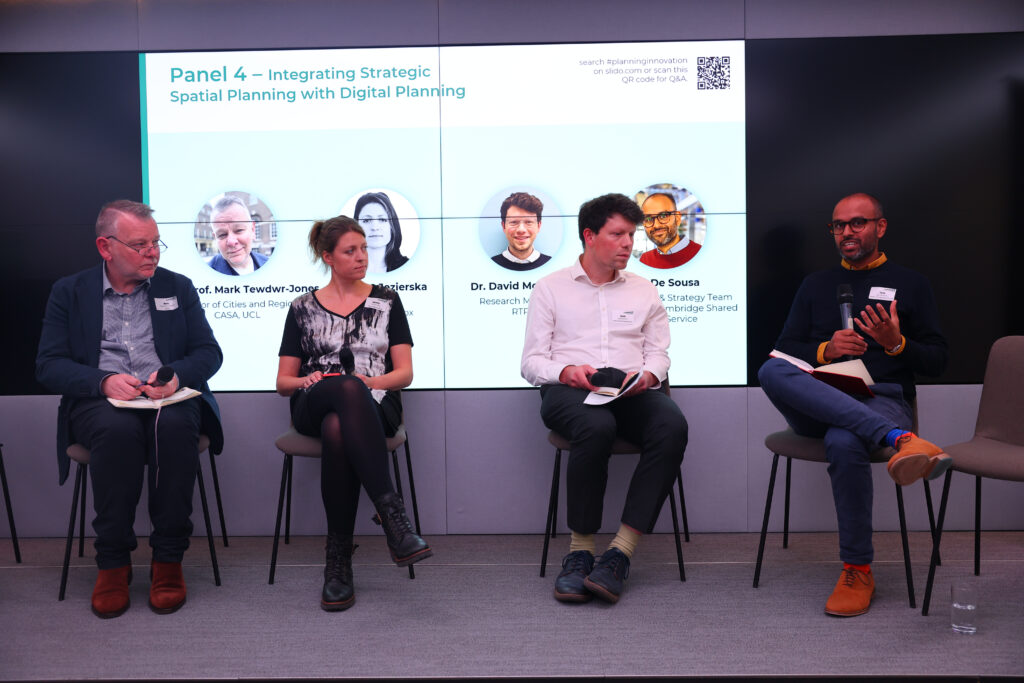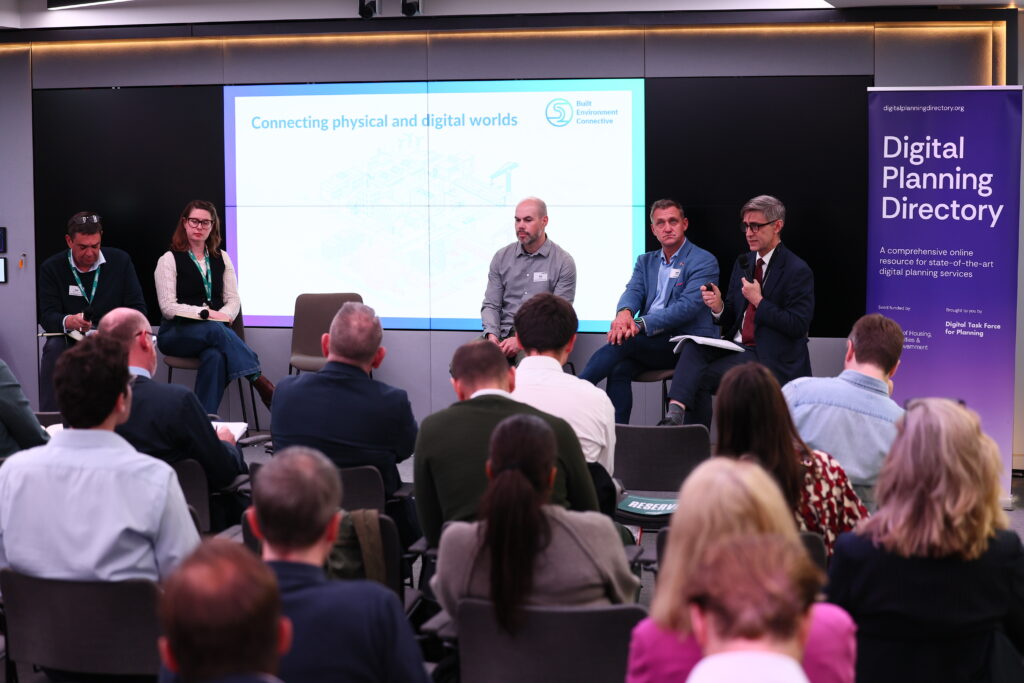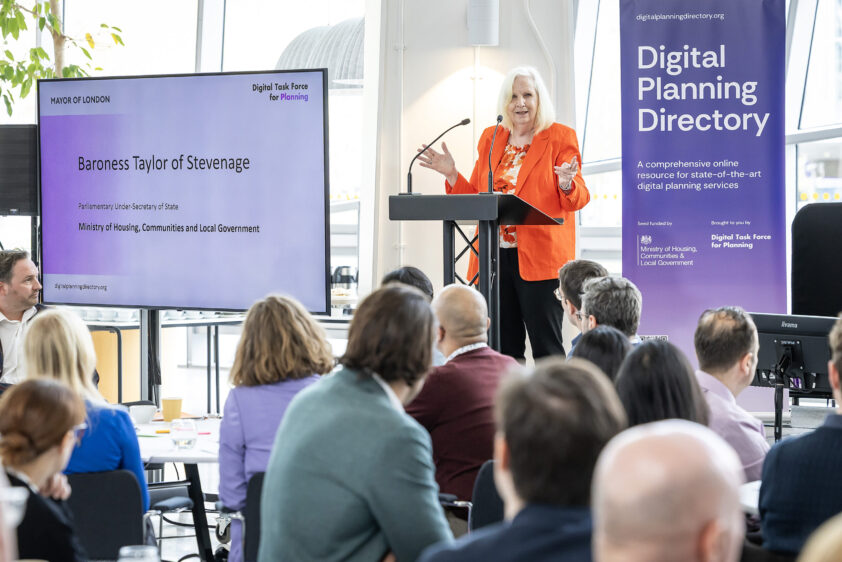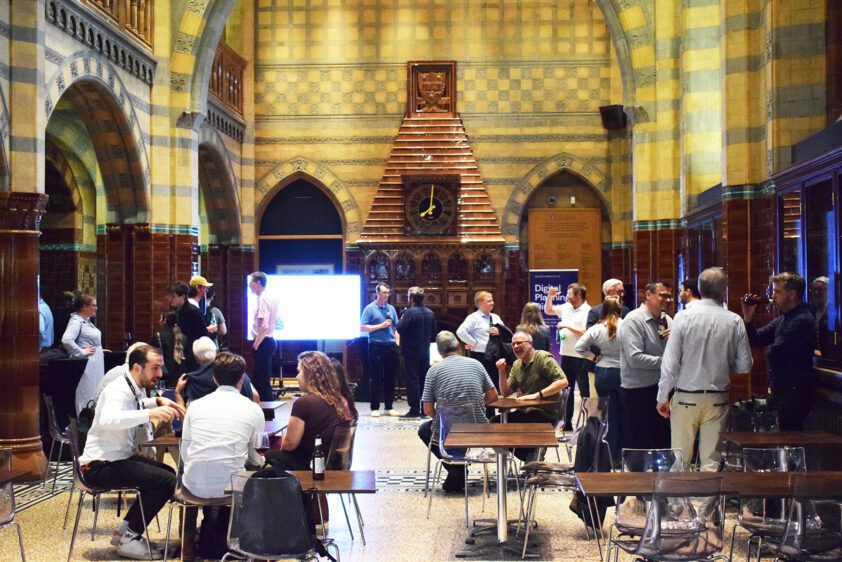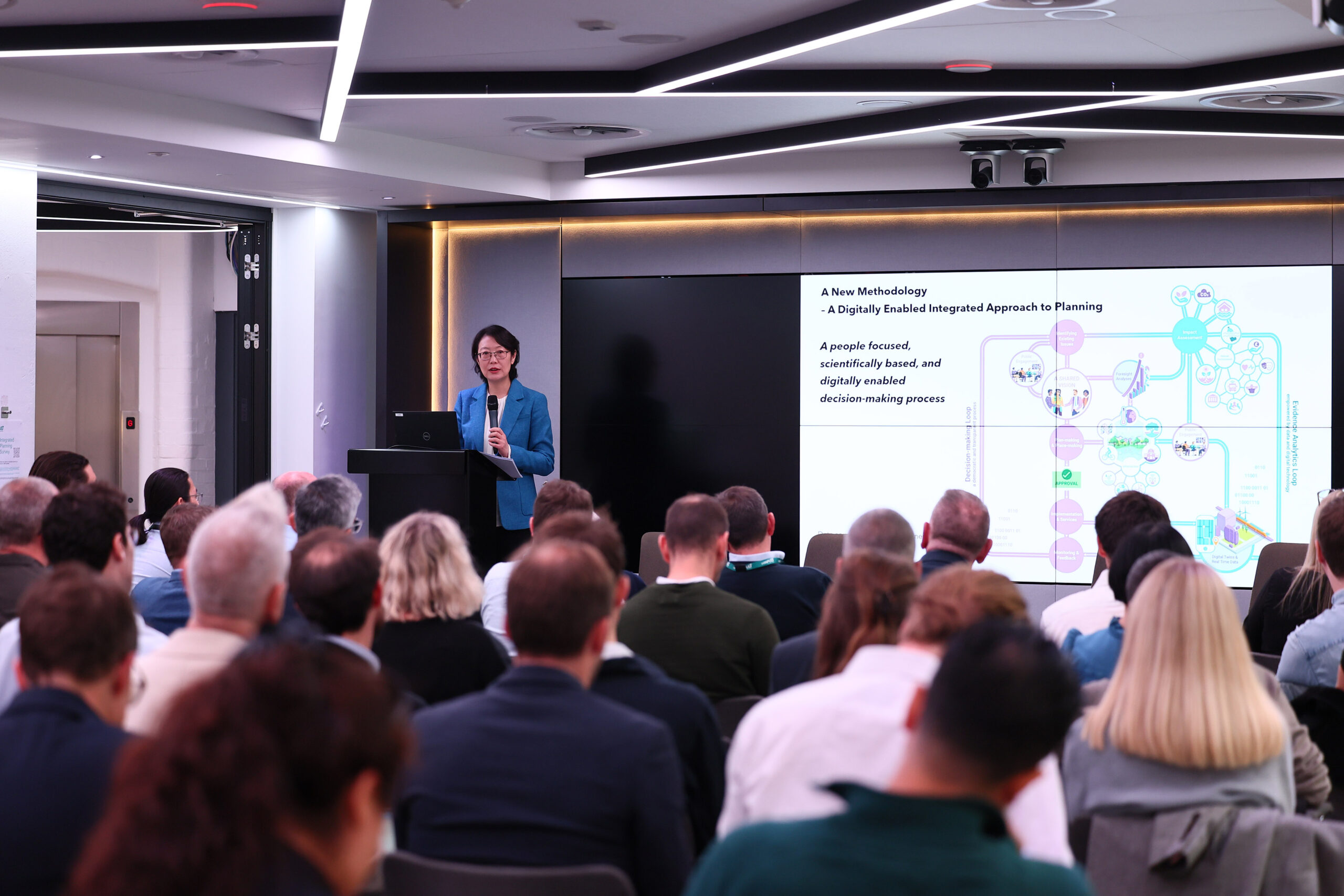
Planning Innovation Summit 2025
The Planning Innovation Summit 2025 convened over 200 delegates, spotlighting digital transformation, integrated systems, and cross-sector collaboration as key drivers of a more holistic and resilient approach to spatial planning.
Planning Innovation Summit 2025: Reimagining the Future with Digital, Integrated, and Strategic Pathways
The Planning Innovation Summit 2025, co-hosted by the Digital Task Force for Planning and Connected Places Catapult, convened leading professionals from government, industry, and academia on 23 September in London. The event, designed as a dynamic hybrid gathering, served as a platform for lively debate and forward-looking discussion about the future of planning. The summit, which gathered more than 200 delegates both online and in person, placed digital transformation, integrated systems, and strategic cross-sector collaboration at its core, recognising these as essential enablers of a more holistic and resilient approach to spatial planning.
The day’s agenda was filled with inspirational talks and engaging panel discussions, all crafted to spotlight current gaps and untapped opportunities in the innovation landscape of planning.
Alan Welby, Managing Director of Built Environment & Local Growth at Connected Places Catapult, set the tone for the Summit with his welcoming address. Both in-person and online attendees were encouraged to embrace a spirit of collaboration and innovation, positioning the event firmly as a launchpad for future progress.
Keynote Address: Dr Wei Yang OBE on a Digitally Enabled Integrated Approach to Planning
The formal proceedings of the summit began with a keynote speech by Dr Wei Yang, CEO of the Digital Task Force for Planning. In her address, “Spatial Planning Reimagined: A Digitally Enabled Integrated Approach to Planning,” Dr Yang articulated the pivotal role planning plays in balancing societal needs, environmental imperatives, and economic realities. She stressed that the sector faces urgent challenges, including climate change, biodiversity loss, demographic shifts, and infrastructure shortfalls. Dr Yang advocated for a move beyond short-term solutions towards a systemic, resilient approach, powered by digital technologies and data-driven insights.
Reflecting on five years of progress driven by the MHCLG Digital Planning Programme, Dr Yang noted the sector’s transition from foundational innovation to a phase focused on mainstreaming digitalisation. She highlighted the importance of strengthening data infrastructure, establishing robust standards, building sector-wide skills, and fostering collaboration across traditional boundaries. For Dr Yang, good digital-era planning is inherently people-focused and evidence-led, blending science and art, technology and human judgement, and ensuring that open and transparent engagement remains central to building public trust.
The summit’s proceedings were structured around a series of themed panels, each addressing a key aspect of planning’s digital future. Rather than attributing specific commentary to individual speakers, this write-up summarises the panel discussions overall, respecting the privacy of participants.
Panel 1: Shaping a Shared Vision for Digital and Integrated Planning
Chair: Dr Wei Yang
Speakers:
Joel Cohen – Digital Planning Programme Strategic Communications Lead, MHCLG
Liz Scott – Geospatial Solutions Architect, Satellite Applications Catapult
Prof Mike Batty – Bartlett Professor of Planning, CASA, UCL
Rhonda Griffiths – Head of LLC Programme Management & Policy, HM Land Registry
Stephanie Bricker – Head of Urban Geoscience and Spatial Planning, British Geological Survey
The first panel explored how digital innovation and collaboration can create a more integrated planning system. The conversation addressed the progress made by national programmes in digital planning, the transformation of data management processes, and the increasing importance of geospatial and subsurface data. The panel considered the role of AI in planning, particularly in enhancing data transparency, accessibility, and improving stakeholder engagement. Participants agreed that systemic changes and broader engagement are needed to achieve ambitious planning targets and unlock the full potential of digital tools.
CPC Insights: Bin Guan on the Digital Planning Journey
Bin Guan, Senior Consultant at Connected Places Catapult, provided a reflective overview of digital planning’s evolution, past, present, and future. His insights traced the sector’s journey from analogue processes to a landscape increasingly defined by data, digital tools, and collaborative innovation.
Panel 2: The Journey of Digital Planning Innovation
Chair: Lou Welham – Head of Innovation, MHCLG
Speakers:
Alastair Parvin – CEO, Open Systems Lab
Benjy Meyer – Managing Director, CommonPlace
Daniel Mohamed – CEO, Urban Intelligence
Grace Manning-Marsh – Chief of Staff, LandTech
Martyn Evans – Head of Product, UnBoxed
This session brought together leaders from pioneering PropTech companies, each sharing perspectives on the frontlines of digital planning. The discussion focused on the development of open-source platforms and digital tools that streamline planning application processes, reduce bureaucracy, and support more accessible, rules-based planning services. Challenges around scaling innovation, the importance of open data standards, and the need for meaningful community engagement were identified as critical factors in the ongoing evolution of the planning system.
Panel 3: Integrating Land Use and Transport Planning for Connected, Sustainable Places
Chair: Alan Nettleton – Head of Integrated Transport Delivery, Connected Places Catapult
Speakers:
Ben Plowden – CEO, Campaign for Better Transport
Rob Singleton – Head of Planning, Housing and Transport, DfT
Sue Percy – CEO, CIHT
Dr Valentina Marin – Associate Director, Space Syntax
The third panel explored the synergy between land use and transport planning, highlighting the crucial impact of digital integration on fostering sustainable communities. The dialogue centred on the benefits of connecting new housing developments to public transport, walking, and cycling networks from the outset. The panel also discussed how digital modelling tools are helping planners better understand movement patterns, social and environmental impacts, and ultimately supporting evidence-based policy alignment between national and local authorities.
Panel 4: Integrating Strategic Spatial Planning with Digital Planning
Chair: Prof Mark Tewdwr Jones – Professor of Cities and Regions, CASA, UCL
Speakers:
Annette Jezierska – CEO, The Future Fox
Dr David Mountain – Research Manager, RTPI
Terry De Sousa – Planning Policy & Strategy Team Leader, Greater Cambridge Shared Planning Service
The fourth session addressed how digitalisation can underpin the emerging frameworks for strategic spatial planning. The panel considered the role of consistent datasets in supporting evidence bases, scenario testing, and the integration of local and regional planning efforts. The importance of mandated data standards, community input, and skills development to mitigate risks of fragmented planning was underscored. The conversation made clear that a national spatial framework, supported by digital platforms and public accessibility, is vital to realising a coherent and collaborative planning system.
Panel 5 & Show & Tell: A Digitally Enabled, Integrated Future
Chair: Geoff McCormick – Head of Planning and Urbanism, Connected Places Catapult
Speakers:
Alanna Gluck – Senior Consultant of Data and Digital Product, Connected Places Catapult
Greg Haigh – Head of Data Science, DfT
Holger Kessler – Senior Stakeholder Manager, AtkinsRealis
Mark Enzer – Strategic Advisor, Mott MacDonald
The final panel shone a spotlight on national-scale digital innovation and the benefits of integrated approaches across the built environment. The discussion highlighted innovative tools developed to support local authority planners, the need for accessible data, and the ongoing barriers posed by commercial and resource limitations. It was agreed that government leadership is essential to overcome these challenges and deliver on housing, transport, and energy ambitions. The importance of developing platforms for sharing climate resilience data and understanding infrastructure interdependencies was also discussed, with digitalisation recognised as the key enabler in creating a future-ready planning system.
Closing Reflections and Next Steps
In their closing remarks, Dr Wei Yang OBE and Alan Welby reflected on the breadth of the day’s conversations and outlined future priorities for the sector. They reaffirmed the importance of cross-sector collaboration, digital integration, and a long-term strategic vision in delivering resilient, inclusive, and sustainable communities. The Summit underscored a shared ambition: to harness digital technologies, integrated systems, and strategic collaboration to transform spatial planning for the better.
Emerging themes included the need for interoperability, clear data standards, advances in PropTech and AI, and ongoing commitment to community engagement. As the sector looks ahead, the message was clear—embrace digital integration, break down silos, and put public benefit at the centre of planning practice. The journey towards a digitally enabled, integrated, and strategic planning future is well underway, promising a more resilient, sustainable, and inclusive built environment for all.
Eight companies listed in the Digital Planning Directory exhibited at the Summit:
